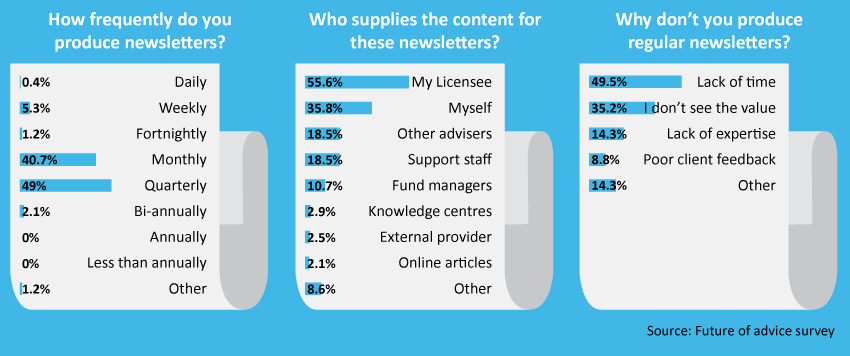
Since the start of this year the reputation of financial planning has been battered by the Royal Commission. Control of the messages about the very real and significant benefits of financial advice has been wrested from the industry’s hands and is now being dictated by the inquiry and commentary on its public hearings and interim report. More will follow in February when the inquiry releases its final report and recommendations.
Communicating with clients effectively has always been important, but never more so than it is now, when the loudest voices belong to those who are criticising advisers and the services that they deliver.
But during the course of the Professional Planner/CoreData Future of Advice research we’ve come across a number of examples of just how easy it is to misjudge the effectiveness of communications, and to assume clients are getting the messages advisers want them to hear, when in fact they are not.
In one case, an advice firm had a number of high-net-worth clients walk out the door, but it didn’t know why. The firm thought it was in regular contact with them, and that it was providing good service.
At the request of the advice firm, CoreData contacted a number of the clients, and the reason they gave for leaving was simple: they felt like the advice firm never talked to them. And to make matters worse, each of the clients had gone to other advisers, where they thought they’d receive better communication and feel more valued.
Anecdotes like this underline the simple fact that good communication is in the eye of the beholder. What you might regard as clear, concise and regular communication with clients simply might not be registering with them at all. So, if you’re going to do it, it’s best to do it well.
Communicating effectively means:
- Having something interesting to say and saying it interestingly.
- Focusing on issues that are relevant to your clients.
- Humanising yourself, your services and your staff.
- Telling clients you’re thinking about them and that their wellbeing is important to you (and to your staff).
- Giving clients the chance to hear your voice and your opinion on timely issues – like why the value of advice remains high, despite what they might have read elsewhere about the Royal Commission.
- Avoiding making clients feel like you’re only ever in contact with them when you want to sell them something.

The Future of Advice survey has found that about 73 per cent of advice businesses produce one of the simplest and most traditional forms of client communication: a newsletter (the survey did not distinguish between publishing in print or electronically). On the face of it, that’s an admirable commitment to the cause.
About 41 per cent of firms that produce newsletters do so monthly, and about half do so quarterly. Producing frequent and meaningful communication is a real commitment, and it’s not a core competency of every adviser or advice firm (if there’s someone in your business who’s truly good at it and happy to do it, you’re half way there).
But having decided to do it, many firms then fail to make the effort to make sure the content of their newsletter is relevant to clients. Fewer than 20 per cent tailor their newsletter’s content “to a large extent” and almost 40 per cent don’t really go to the effort to tailor it at all. Well over half rely on their licensee for all newsletter content. How well does your licensee know your clients?
It’s not difficult to imagine how few times a client needs to be on the receiving end of information that is not relevant and just not interesting before they start to feel as though their adviser doesn’t really know them or even care much about them. Then the emails start to go straight to the trash or – even worse, considering the costs involved in snail-mail – they don’t even make it out of the envelope.
Regular communication (in print or electronically) is not on its own enough to secure strong client relationships. But it’s an important and effective part of the overall mix when it’s done well, even though there’s still no substitute for a good, old-fashioned face-to-face meeting or a phone call.
About half the advice firms that don’t produce newsletters say they just don’t have time to do it. And well over a third say they don’t see the value in it. At least they’re being honest – which is another vital component of effective communication.
